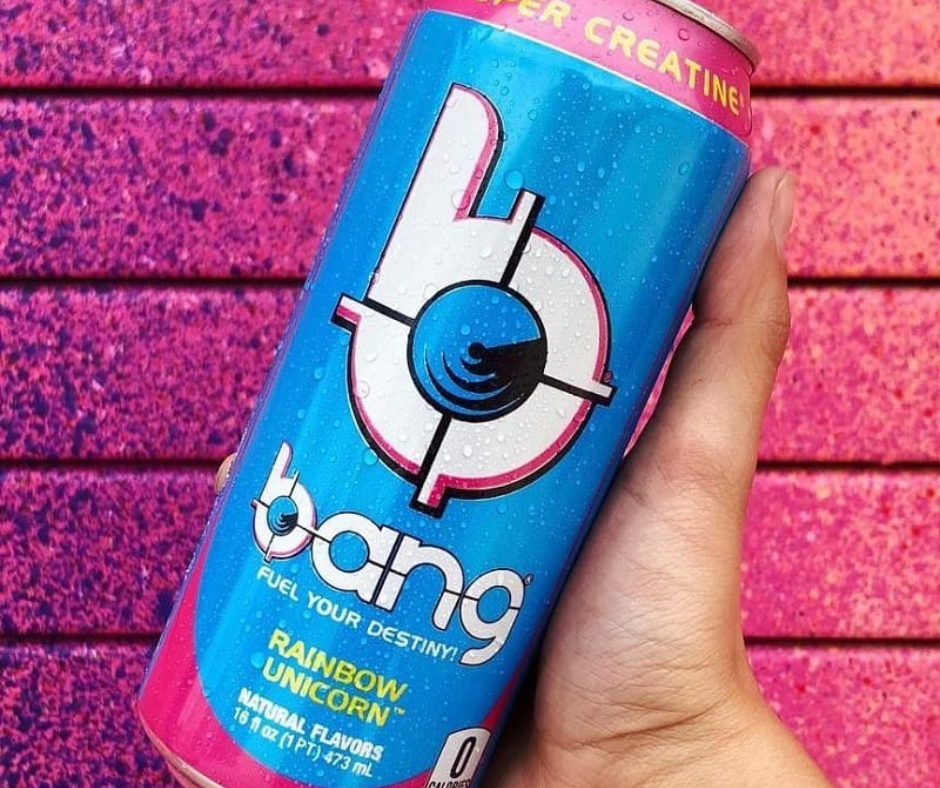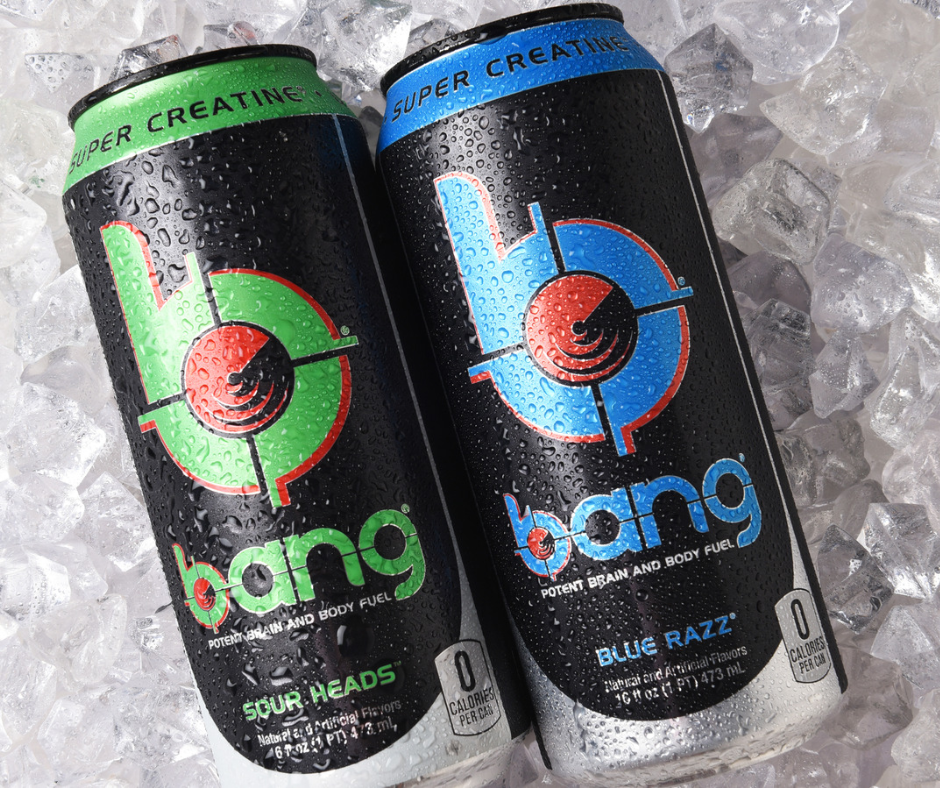Bang, a highly-caffeinated energy drink, could pose health risks if consumed excessively. The drink’s high caffeine and additive content can be harmful.
Bang Energy drinks, surging in popularity among fitness enthusiasts and those seeking a quick energy boost, warrant a close look for potential health implications. Containing a potent mix of caffeine, amino acids, and vitamins, Bang promises to enhance energy, performance, and mental focus.
Yet, its caffeine content—about 300 mg per can—far exceeds the daily recommended limit for some individuals, raising concerns about its safety. Consumers with sensitivity to stimulants, heart conditions, or those under 18, pregnant, or nursing should exercise caution. As with any high-stimulant product, moderation is key, and it’s critical to be aware of the ingredients and understand how they might interact with your body. Expert opinions often highlight the importance of balancing these energy boosts with an awareness of one’s own health and sensitivity to caffeine.

Bang Energy Drinks: The Surge Of Popularity
Bang Energy Drinks have skyrocketed in fame among gym lovers. Many seek the quick energy boost that Bang promises. With unique flavors and alluring marketing, its appeal is broad. Fitness forums and social media buzz with tales of enhanced workouts.
As popularity soars, Bang has grown its consumer base. It’s not just gym-goers; even busy professionals and students are reaching for a can. This surge is changing the energy drink market. Shops now stock Bang alongside traditional beverages. The energy drink shelf is evolving, reflecting changing tastes and new demands.
Caffeine Content: How Much Is Too Much?
Understanding the caffeine content in Bang is key to knowing its safety. Bang’s caffeine levels are significantly higher than many other drinks. It contains 300mg of caffeine per can. This is more than triple the amount in a standard cup of coffee, which averages at 95mg. It’s vital to compare Bang’s caffeine to everyday drinks.
| Beverage | Caffeine Content |
|---|---|
| Bang Energy Drink | 300mg per can |
| Coffee (8 oz) | 95mg |
| Tea (8 oz) | 26-50mg |
| Soda (12 oz) | 30-40mg |
High caffeine can be a health risk. It may cause sleep problems, heart issues, and more. Children and pregnant women should not have much caffeine. People need to know about Bang’s strong caffeine presence.
Beyond Caffeine: What’s Inside The Can?
Many energy drinks, including Bang, contain artificial sweeteners. These sweeteners offer a sugar-free boost of sweetness. Some common ones are sucralose and acesulfame potassium. People often worry about the health impacts of these substitutes. Research is ongoing, but excessive intake may lead to negative effects.
Essential amino acids and creatine can also be found in Bang. The body uses amino acids to build proteins and muscles. Creatine is known to help improve strength and power during workouts. These ingredients might be helpful, but not everyone needs an extra dose. Active folks may benefit, but for others, it could be unnecessary.

Investigating Health Claims Made By Bang
Bang Energy drinks often promise better workouts and focus. Experts have tested these claims. They check ingredients that Bang says can improve your body’s power. Caffeine, amino acids, and vitamins are under the microscope.
Studies suggest large doses of caffeine may boost performance for a short time. But, too much caffeine can be unsafe for kids and adults. It can cause heart and sleep issues. Always ask a doctor before trying energy drinks.
Consumer Experiences And Reviews
Many users report a boost in energy after drinking Bang. Some say they feel hyper-focused and more productive. Yet, others experience jitters and an uncomfortable crash. Reports vary widely due to individual tolerance levels.
Health experts raise concerns about high caffeine content. They link excessive consumption to potential health risks. Nutritionists often caution against daily use for overall well-being. Dieticians advocate balanced diets over supplements.
| Reviewer | Opinion |
|---|---|
| Exercise Enthusiasts | Love the immediate energy spike |
| Office Workers | Feel more alert and awake during work |
| Healthcare Professionals | Warn about the risks of too much caffeine |
Making An Informed Choice: Should You Bang On?
Is Bang Bad for You? Many people ask this. They want to stay awake and feel energy. Bang has caffeine and sweeteners. These can be too much for some. People like the quick boost. But, they worry about health.
Energy drinks can cause sleep problems. They might make your heart beat fast. Sometimes they lead to anxiety or jitteriness. It’s good to know what’s inside your drink.
There are other ways to get energy. Eat healthy foods like fruits and nuts. Drink water. Try to sleep well. Even a quick walk can boost your energy.

Frequently Asked Questions Of Is Bang Bad For You
Are Bangs Bad For Your Heart?
Bangs, referring to a hairstyle, have no direct impact on heart health. They are a personal fashion choice and unrelated to cardiovascular function.
Why Is Bang Energy Bad For You?
Bang Energy drinks may be unhealthy due to high caffeine content and artificial additives, which can lead to potential heart issues, sleep disruptions, and anxiety in some individuals.
Is Bang Worse Than Red Bull?
Determining whether Bang is “worse” than Red Bull depends on individual health factors and beverage preferences. Both energy drinks contain caffeine and other ingredients that can impact health differently for each person. Consult a health professional for personalized advice.
Are Energy Drinks Bad For You?
Energy drinks can be harmful due to high caffeine and sugar content, potentially leading to health issues like heart problems and diabetes when consumed in excess. Moderation is key.
Conclusion
Navigating the world of energy drinks like Bang requires balance and information. Research and moderation are key to enjoying its benefits and avoiding potential health risks. Remember, personal health goals and conditions vary; consulting a healthcare provider is wise for tailored advice.
Choose wisely, stay informed, and prioritize well-being over fleeting energy boosts.

